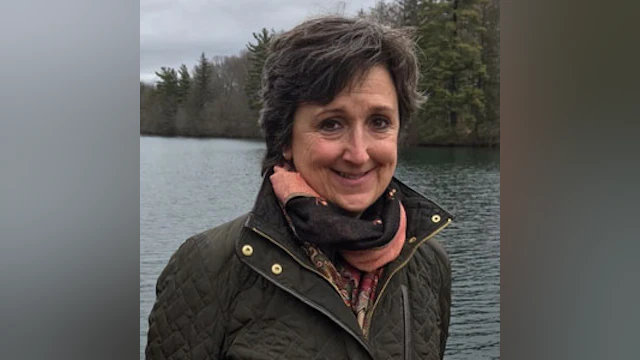Chances are, at some point in your life, you may know someone who is contemplating taking their own life. But do you know how to try to stop that from happening?
I didn’t. When my youngest brother Danny confided in me that he sometimes strolled around at night, looking for the best spot to take his own life, I panicked.
“Shut up!” I said with a nervous laugh, struggling to regain my breath and stop my head from spinning. Then I punched him in the arm and changed the subject.
I thought, wrongly, that letting Danny talk about wanting to die would make him more inclined to act on his feelings. Turns out, letting people express their emotions is exactly what helps them feel better, more connected. Suicide prevention research shows that the best thing I could have done in this situation was to trust my gut and ask Danny directly and nonjudgmentally if he was genuinely thinking about suicide. A good follow-up question, if he’d said yes, would have been to ask him if he had a specific plan to do so.
Research shows that asking someone directly about suicidal thoughts is not going to push them to act, or "put the idea in their head." The idea is already in their heads.
Research also reveals that, despite appearances, no one takes their life for a single reason. It's usually a perfect storm of several known risk factors. They may feel confused, alone and scared, and can’t envision a better way out of whatever is troubling them. Dying seems like their best option. Talking openly is often the first step in connecting them to help.
I wish I had known better with Danny, who was at a high risk for suicide. We both were.
Our sister Nancy had taken her own life fourteen years earlier — and family members of those who die by suicide are at increased risk.
But talking about our feelings wasn’t the Kissinger family modus operandi. We were more the wisecracking “fake-it-til-you-make-it” types. The night that Nancy died, 19 years earlier, our father had called us all into the living room and instructed us, in no uncertain terms, that, “If anyone asks, this was an accident.”
Danny need not have been embarrassed to confide in me. Suicide has long been a leading cause of death — a public health crisis that affects most of us in some way.
But there is good news in the face of this. People are much more willing to discuss their feelings now than they were when Danny and I had our talk back in 1993. The new three-digit number, 988, for the 988 Suicide & Crisis Lifeline, makes it easier to find someone who will listen in those desperate moments.
But simply urging people to get help is not enough. We need more mental health providers and more sustained affordable mental health care — just a couple examples of public policy issues related to preventing suicide. We all need to learn how to have these conversations.
If we are going to cut down on the alarming number of suicides, we need to let our friends and families talk about their suicidal thoughts without making them feel ashamed. We have to figure out a way to have these painful conversations, regardless of how frightened or hurt we may be to hear them. Thinking about killing yourself is a complex health crisis, not a moral failing. We need to be able to ask, “Are you feeling like hurting yourself” with the same clarity and sense of purpose that we would about chest pains or trouble breathing.
Ultimately, I did convince Danny to go see a doctor. He was hospitalized for a bit and given medication. That helped him feel better, for a while. Everyone is different, but some combination of therapy and/or medication has been proven to help people. But sometimes, like with cancer and heart disease, death comes despite our best efforts.
The week before he died, Danny sent me a letter describing what it was like to live with chronic mental illness.
“This is an awful disease,” he said. “It makes you think and act in foolish ways.”
Even in his despair, Danny had hope that we could cut down on the number of people who died from these illnesses. His formula?
“Love and understanding,” he wrote.
If you understand someone, you can love them, he said. And, if you love them, you will listen. You will let them talk. You will have these potentially life-saving conversations.
Meg Kissinger wrote about the nation’s mental health system for more than 30 years for the Milwaukee Journal Sentinel. She teaches investigative reporting at Columbia University’s Graduate School of Journalism and trains journalists on trauma reporting for the school’s Dart Center. Her memoir, While You Were Out: An Intimate Portrait of Mental Illness in an Era of Silence, was named as an Amazon and Goodreads top memoir of 2023 and an Audible Best Book.
